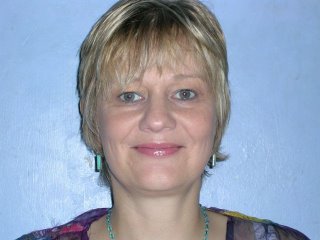 I am glad to welcome Janice Fixter (pictured here) to these April-leaning pages this Friday. I have been very much enjoying the poems of hers I've seen lately, in my various roles as an editor, and mild-mannered poetry reader. The poem featured today is one of the ones that especially struck me and is taken from her latest pamphlet.
I am glad to welcome Janice Fixter (pictured here) to these April-leaning pages this Friday. I have been very much enjoying the poems of hers I've seen lately, in my various roles as an editor, and mild-mannered poetry reader. The poem featured today is one of the ones that especially struck me and is taken from her latest pamphlet.Fixter was born in Kent and has remained in the South East ever since. She writes non-fiction and poetry and her poems have appeared in many respected journals such as Agenda, Smiths Knoll, Tears in the Fence, Iota, Staple, The Times, Envoi, and Smoke. Her poems have also been broadcast on local radio, LBC and Radio 4. Her haiku have been anthologised both in the UK and in the USA.
Fixter has had two poetry collections published: Walking Away From the Shadows was published by Poets Anonymous in 1997 and Walking the Hawk (pamphlet) was published by Tall Lighthouse in 2005.
She has an MA in Creative Writing, the Arts and Education and a D.Phil. in Creative Writing. Her non-fiction is published by Hodder and Stoughton. She is a director of a parenting charity. She is currently working on a new collection to be published with Tall Lighthouse in 2007.
My Father and Joseph Brodsky
Each morning I wake
to a pile of books by my bed
and sunlight
turning a photo on a spine
into the face of my father.
Perhaps it’s the angle, the line of the mouth,
something in the eyes of Joseph Brodsky -
while he, who never wrote poetry,
spoke no Russian,
hangs on in a hospital,
balance and language gone.
Every day is measured out in watery breath,
teaspoons of it -
we feed him mashed-up strawberries.
It’s nearly dawn
after another night of shallow sleep
and I am walking round the room
in the almost light,
holding this volume of poetry.
I am trying to find a different place,
space on the shelf for it.
I am trying to find
a new way of waking in the morning.
poem by Janice Fixter
Comments